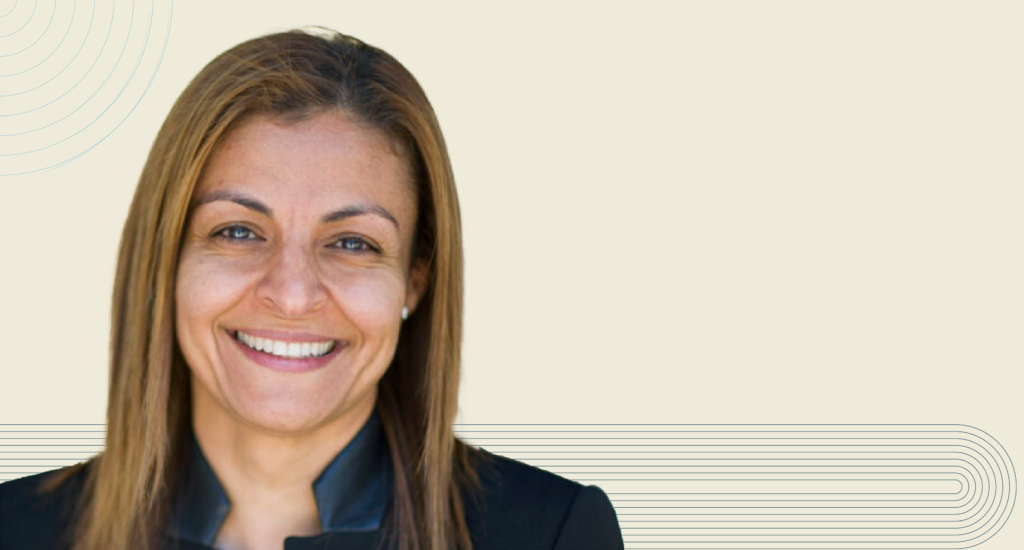News
Maryana Iskander: “Embracing collaboration, leading with empathy and being open to different perspectives are the kinds of ways women leaders can help other women.”
Maryana Iskander, CEO of the Wikimedia Foundation talks about the attributes of effective leadership, shifting philanthropy for greater impact, and self-knowledge as the recipe for effective self-care.
Maryana Iskander knows a thing or two about running impactful nonprofit social enterprises, having served at the helm of several organizations across her illustrious career. She is the Chief Executive Officer of the Wikimedia Foundation, and previously spent ten years serving as CEO of Harambee Youth Employment Accelerator, a Co-Impact program partner. Maryana is also a Truman Scholar, a Henry Crown Fellow, a member of the Aspen Global Leadership Network and a member of the Mellon Foundation board of trustees.
Q&A
What drew you to join Co-Impact as a board member?
My journey to the Co-Impact board started as a program partner. I was the CEO of Harambee Youth Employment Accelerator and we had the privilege of being one of Co-Impact’s earliest partners. Going through Co-Impact’s unique design phase gave us an opportunity to refine our strategy and incorporate into our approach the idea that it’s not just about an organization scaling up its own service delivery but about operating at scale. The idea of building and operating within a winning coalition, and measuring success by the changes we can make in the public and market systems to improve the lives of all people, have shaped my belief that we need this kind of thinking across philanthropy and the gender landscape.
How would you describe your role as a Co-Impact board member?
The core goal of a board is to safeguard and protect the vision and mission of the organization in partnership with the CEO and the team. I believe we can only do this by engaging with the people who are doing the work, and with Co-impact’s regional teams, who are rooted in the local context – to see and understand how Co-Impact’s approach is impacting the lives of millions of people – not only now but for years to come.
It’s a privilege to serve on Co-Impact’s board alongside other incredible leaders.
What do you hope to see in 5 or 10 years as a result of Co-Impact’s work?
Meeting the goal of positively impacting the lives of millions of people is critical. Another important role for Co-Impact is to be a catalyst for change within philanthropy. I’d like to see shifts in how philanthropy funds the important issues facing us today. I’d like to see more funders and philanthropists adopting Co-Impact’s approach and recognising why it’s so important to fund initiatives that are changing the way the systems of health, education and economic opportunity work.
What does women’s leadership look like to you?
I have two reflections. One is that I think we have to uphold leaders who are good leaders irrespective of their gender, based on what we want to see in the world. Everyone benefits from collaborative, empathetic leadership that embraces diversity.
That said, we know that the systemic inequities in most of the structures in the world, have resulted in women being less visible, less in control of their own destiny, less able to make the kinds of impacts in their communities that they ought to be able to do. In that respect, the work Co-Impact is doing to really lift up women’s voices and participation in decision-making spaces, and make women more visible is vital.
For me, embracing collaboration, leading with empathy and being open to different perspectives are the kinds of ways women can help other women. I see a lot of that already and feel very encouraged by it.
Given your many responsibilities, what’s your practice for self-care?
The question of self-care is really important. I think that for me the first and most important step is to choose work that energizes you. But getting a choice about your work is a privilege that very few people in the world have. I worked on issues of youth unemployment for so long and know that few people get to decide what work they do, so it’s not a privilege to be taken for granted. Which is why if you are in that position, self-care starts with critical choices about your environment, your colleagues, the issues, the mission – all of those things. Once that’s in place then it’s about practices that ensure you deepen your self knowledge. You can only work on those things about yourself that you know, and the journey of ensuring that you are increasing your self-knowledge will lead you to practices of self-care that are effective.
